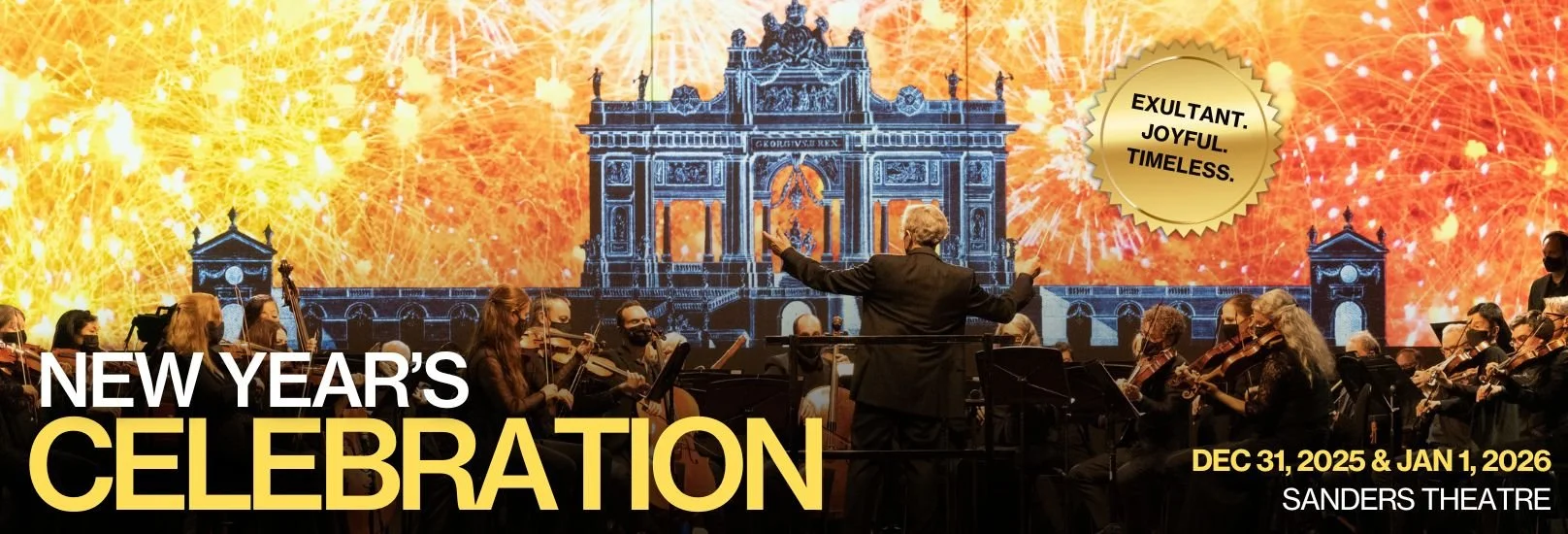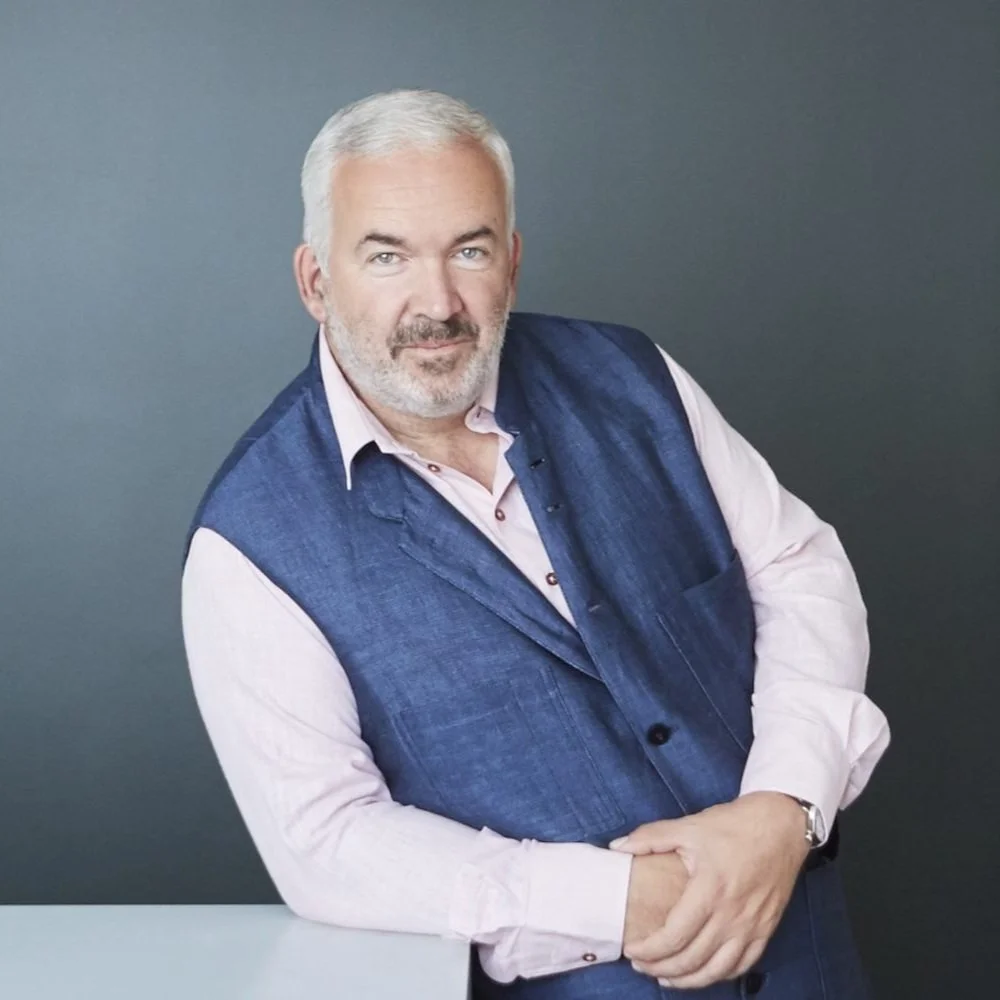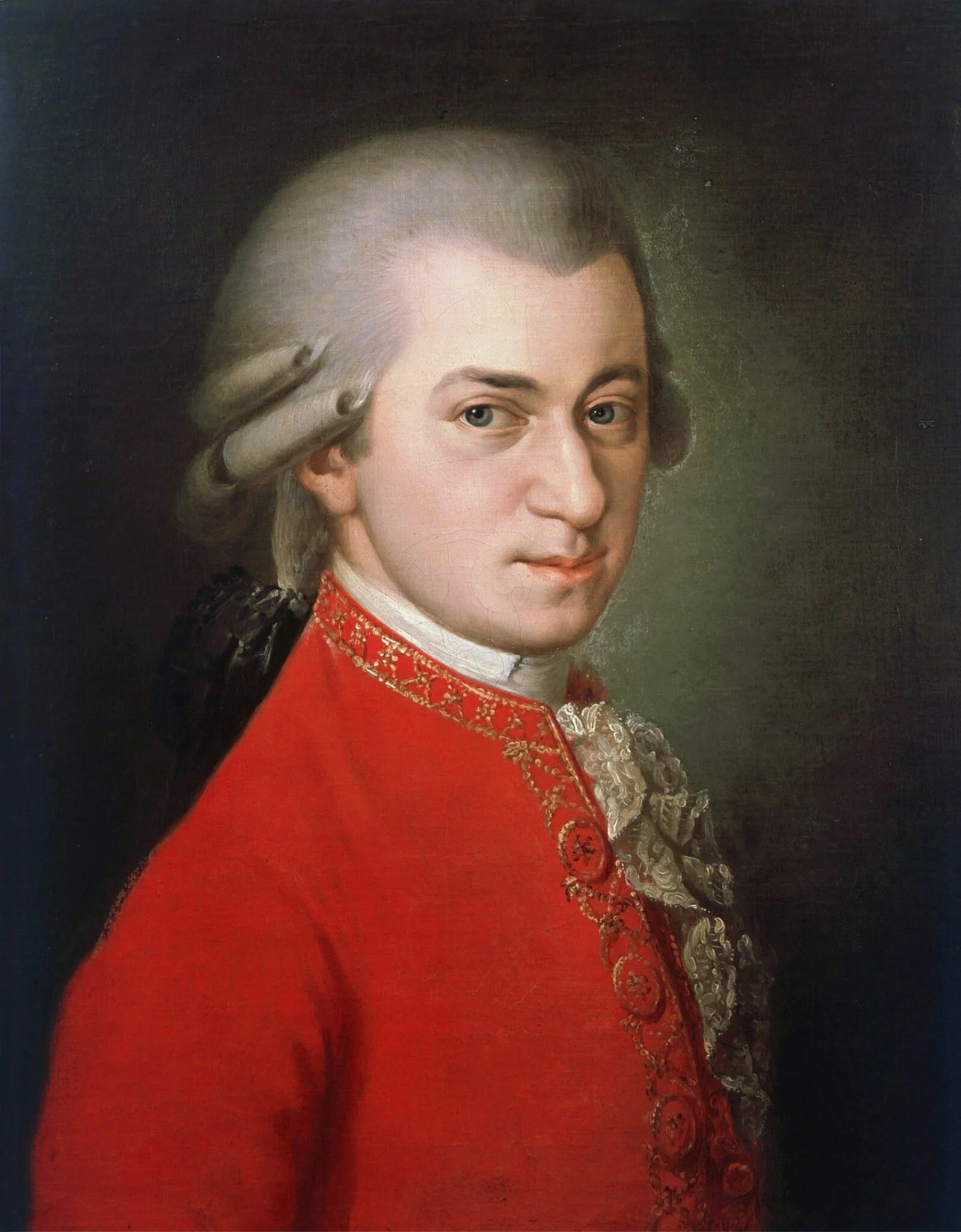PLEASE NOTE THE START TIME FOR NEW YEAR’S EVE PERFORMANCE HAS CHANGED TO 7:30PM.
2025-26 Season > New Year’s Celebration
Ring in the new year with a festive program of Handel’s complete Water Music, select arias by Mozart, and a musical surprise (Revealed to be Gimme! Gimme! Gimme! by the Scandinavian pop group ABBA, arranged by Laurent Couson for orchestra). Led by internationally renowned conductor Marc Minkowski and featuring mezzo-soprano Samantha Hankey, this concert is sure to set the tone for an inspiring and hopeful year ahead.
Composed in 1717 for King George I’s royal barge outing on the River Thames, Handel’s Water Music is one of the most iconic and joyous works of the Baroque era. Brimming with lively dance rhythms, regal fanfares, and infectious energy, the three suites that make up Water Music were designed to be heard outdoors, captivating the royal court and Londoners alike as they floated along the river. Nearly three centuries later, the work remains a timeless symbol of celebration, vitality, and musical brilliance—perfect for welcoming a new year.
Don’t miss this unforgettable celebration!
Estimated Run Time
2.5 HRS | One 20-Minute Intermission
Location
Harvard’s Sanders Theatre | 45 Quincy St, Cambridge, MA 02138
ARTISTS
PROGRAM
Symphony No. 1 in E-Flat Major, K. 16
“Parto, parto,” K. 621
from La clemenza di Tito
Overture, K. 486
from Der Schauspieldirektor
“Dove sono i bei momenti,” K. 492
from Le nozze di Figaro
“Mi tradì quell'alma ingrata,” K. 527
from Don Giovanni
Wolfgang Amadeus Mozart (1756-1791)
~ Intermission ~
Suite in F Major (Nos.1–10), HWV 348
Suite in G Major (Nos.16–22), HWV 350
Suite in D Major (Nos.11–15), HWV 349
George Frideric Handel (1685–1759)
Gimme! Gimme! Gimme! (A Man After Midnight)
Encore Arr. by Laurent Couson
ABBA
COMPOSER
George Frideric Handel (1685–1759)
One of the towering figures of the Baroque era, George Frideric Handel was born in Germany, trained in Italy, and achieved lasting fame in England, where he spent most of his career. Renowned for his operas, oratorios, and orchestral works, Handel was a master of creating music that blended grandeur, elegance, and expressive charm.
Composed in 1717, Water Music is one of Handel’s most famous and enduring orchestral masterpieces. Commissioned for a royal outing on the River Thames for King George I, the work was performed by musicians on a barge following the royal procession. The king was so delighted with the music that he reportedly requested it be played multiple times throughout the journey.
Water Music is a collection of three lively suites filled with spirited dances, graceful melodies, and regal fanfares that reflect the grandeur of its setting. From the buoyant Hornpipes to the stately Minuets, the music captures both the festive atmosphere of the occasion and the brilliance of Handel’s orchestral writing. More than 300 years later, Water Music remains a joyful celebration of life, ceremony, and the enduring power of music to bring people together.
Wolfgang Amadeus Mozart (1756–1791)
Wolfgang Amadeus Mozart was one of the most influential composers of the Classical era, whose music helped shape the development of opera, symphony, and chamber music. A child prodigy who toured Europe from an early age, Mozart absorbed a wide range of musical styles and transformed them into a distinctive voice marked by clarity, balance, and dramatic insight.
A selection of Mozart’s arias will be performed, representing his mastery of vocal writing and his deep understanding of character and emotion. His operas elevated the genre through a seamless fusion of text and music, advancing both the expressive range of the voice and the sophistication of orchestral accompaniment.
Mozart’s arias remain central to the operatic repertoire today, reflecting the enduring appeal of his craftsmanship and the universality of his musical language.






